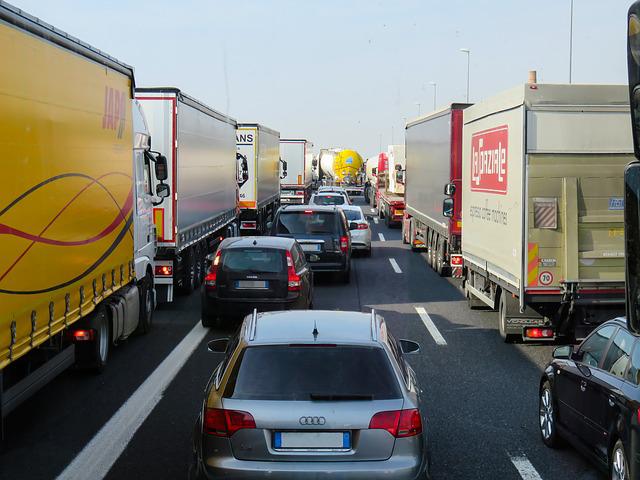
Stay Hydrated
Hot summer’s days cause you to perspire, which means that you are losing precious body fluid. Those fluids need to be stopped up – and the best way to do that is to drink plenty of water. Sweating lowers your body temperature – but you need fluid to help your body stay cool.
If you do not drink enough water you may suffer from dehydration. Even a mild case of dehydration can lead to feelings of nausea, fatigue, and dizziness, as well as an upset stomach. Dehydration also impairs your ability to focus – and that can be dangerous to you while driving and also endanger the lives of others on the road. Monitor your water intake during the summer months and make sure that you top up.
Before setting out on your HGV journey make sure that you are sufficiently hydrated – and make sure that you have plenty of water at hand. A good idea is to freeze some bottles of water. These act as ice packs to keep you cool and when they thaw you will have a cool and refreshing drink.
Be Glare Aware
The sun can be harsh during the summer months and adversely affect driving conditions. Driving towards the sun is especially dangerous as it can distract you from the jb of driving, extending reaction times in challenging road conditions.
Ensure that you have a pair of quality sunglasses that feature UV protection. Not only will these protect your eyes, but they will also reduce glare to manageable levels.
Sunscreen is Important
Ensure that you apply sunscreen at regular intervals, even if you are in your truck. Sunburn is a very real risk. You may think that ‘Trucker’s Tan’ is no big deal, but exposure to the sun is dangerous – and requires that you protect all your exposed skin. G for a higher factor protection cream that protects from both UV and UNB rays.
Make sure your HGV is Ready For Summer
Those hot summer months can adversely affect drivers – but they can also take their toll on vehicles like HGVs. Be on the lookout for these commend issues that can affect your vehicle:
Tyre blowouts are much more common during hotter weather. Tires come under increasing pressure to the heating up of the air around them – and the increasing temperature of the tarmac and the metal of the HGV. Heat and pressure can build extremely quickly – and tyres can exceed their design specifications leading to a blowout. Unfortunately, there isn’t really much that the HGV driver can do to prevent the increase in tyre heat and pressure. However, make sure that tyres are inflated t pressures in line with the manufacturers recommendations. Under inflated tyres can also increase the risk of blowouts occuring. If you have any questions about HGV training, Easy As HGV have plenty of coverage to help you.
Take care of Your Brakes
Brake performance is adversely affected in cold weather, that’s common knowledge. However, brake fade is also a fact of life on the road during the hotter months. Applying your brakes causes friction and heat – and hot weather increases brake heat still further. Brake performance can become unpredictable, or in severe cases fail completely. Ensure that your brake fluid is replaced regularly, the pads are in good condition – and make allowances for the fact that you may need more time to slow down when the temperature is high.

